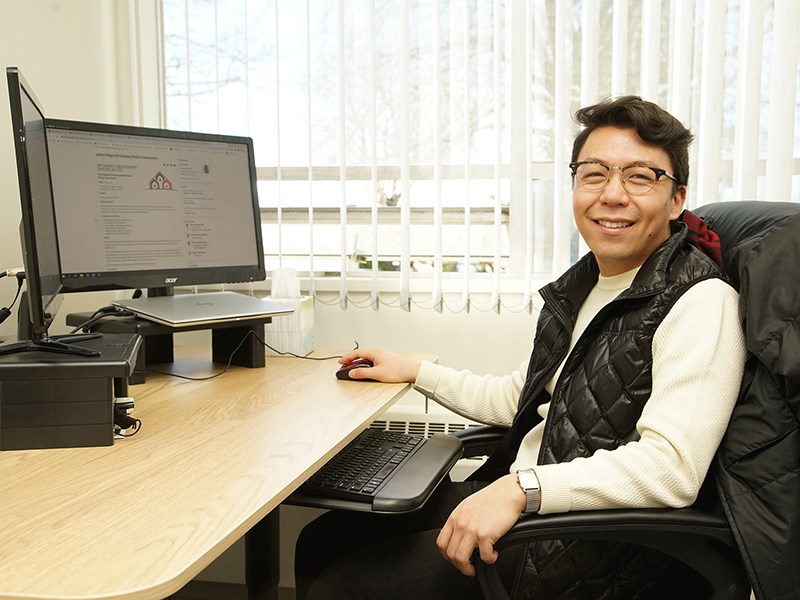Public participation will be solicited to help finalize the qathet regional housing needs assessment, which has studied housing throughout the area.
Later this month, two virtual open houses will be held to review recommendations in the draft needs assessment report and gather community feedback.
Kai Okazaki, regional social planner, said during the past few months, the regional social planning office, which represents City of Powell River, qathet Regional District and Tla’amin Nation, has been working on a regional housing needs assessment. He said the project has been funded through Union of British Columbia Municipalities.
“It requires local governments to identify the kinds of housing inventory in the community and what the projected needs are in the future,” said Okazaki. “It is to essentially say: how is housing looking for the community, are there gaps anticipated for the future, and if so, what will be those needs to accommodate those gaps?”
Okazaki said this is a useful exercise for local governments because the needs assessment identifies the target for houses and what types are required.
Throughout this project, several forms of engagements have taken place. In the late summer and early fall in 2020, about 530 people responded to a community survey. Facilitated roundtable meetings were also hosted, and several meetings were held with city, regional district and Tla’amin staff. Okazaki said with this input, and using census and building permit information, a draft plan with recommendations has been prepared for increases in affordable and market housing stock.
“With the draft report completed, we wanted to give the public an opportunity to listen in on the information provided and also to contribute their thoughts on any final pieces we might be missing from the report,” said Okazaki.
The virtual open houses have been created to invite people to listen in on how housing has been impacted in all three local government areas.
“They will provide an insight into what housing looks like in the three communities and solicit gaps not covered in this report that should be made note of,” said Okazaki.
Two sessions are being offered. On February 16, from 7 to 9 pm, and on February 17, from 1 to 3 pm, virtual open houses will be hosted. Okazaki said people can sign up ahead of time to register where they live and to be sent the online link to the Zoom teleconference. The open houses are structured for anyone to attend.
“This is a general public callout,” said Okazaki. “We’ve already had discussions with professionals in the housing industry.”
Leading up to the event, information and registration can be found at participatepr.ca. People can also register by sending an email to [email protected]. When emailing, they can indicate which session they want to attend, and whether they live in the city, regional district or Tla’amin.
If people can’t make either of the open houses, a recorded version will be available at participatepr.ca afterward. Okazaki said if people want to listen to the recording and provide comments, they can still do that.
He said the open houses will be carried out with a number of staff from the three governments on the teleconference, as well as consultants who have been part of the process.
The housing needs assessment was mandated for the city and regional district under the Local Government Act and the regional governments received $80,000 to carry out the study.
Tla’amin was not required to be involved but saw value in being active participants.
Okazaki said the open houses are something new, so it’s a good testing ground for what kind of engagement will work in the community.
“We have made good progress at this point and hopefully the final report looks really polished and great,” said Okazaki. “It’s been a lot of work. Housing has been a known conversation in our community so it’s great that the community has been coming to support this.
“I’m hoping this report will give guidance on how to approach housing in the future for this community. This report will help us navigate housing and develop a strategy moving forward on how to prioritize housing.”
It’s anticipated that the final regional housing needs assessment report will be completed and will go to the three governments this year. Okazaki said the document should be divided into standalone sections for each government to use, with a regional overview also written as part of the report.



